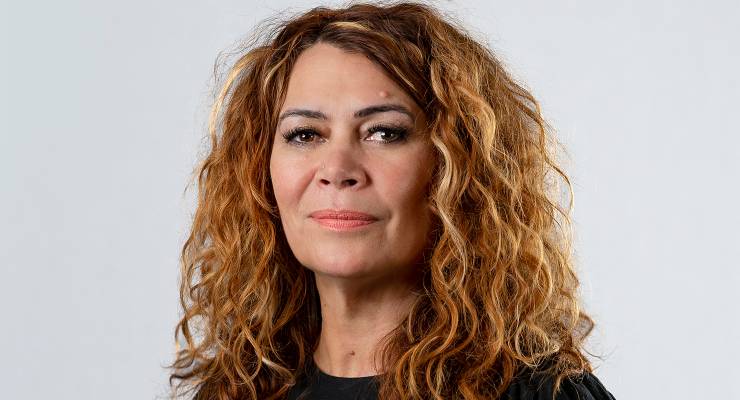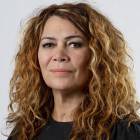
The end of 2023 was a challenging — no, devastating — time for me, an Aboriginal woman who has dedicated more than 20 years to ensuring First Nations women and children have access to self-determined, holistic, wrap-around services for their safety.
Just over two decades ago, together with a small group of Aboriginal women and men, I was instrumental in establishing Djirra, a specialist Aboriginal community-controlled organisation in Victoria. Today, we work with Aboriginal people who experience family violence — predominantly women and their children.
For us, the First Peoples of this country, 2023 kicked off like every other year: the fight against racism, systemic discrimination and structural violence continued day after day, month after month, just as it always has. But there would be a unique difference. One more date would be added to our calendars and, unbeknownst to us, it would give us more reason to fight.
The Voice referendum in October, which was preceded by a bruising campaign that saw the kind of overt racism unleashed against our people not seen in a generation, was hard and hurtful. It was sickening to see cynical supporters of the “No” campaign politicise Aboriginal women and children’s safety. The perpetual naysayers talked about the “practical” change that was needed “on the ground”, as if the change that we seek, as Aboriginal women, is impractical. We became a political football.
Then there was the horror run of men’s violence against women that saw out the year. Devastatingly, 64 women were allegedly murdered — including at least seven Aboriginal women. In the lead-up to the International Day for the Elimination of Violence Against Women in November — there was little rest for the weary among us in the Aboriginal women’s safety sector still reeling from the failed referendum — five women were allegedly killed in a single week.
By the end of the year, it was time to reflect and regroup. I have returned to work in 2024 more determined than ever to continue raising awareness about the devastating impacts of violence against our women and children.
I have chosen to “remain in the Yes”, and I invite the 6 million people who voted Yes to walk with Djirra to bring visibility — and voice — to Aboriginal women’s safety and self-determination. This means several things.
We need everyone to go harder now and be prepared to stay the distance, just as our people have since invasion. I take heart in the defiant words of the Uluru Statement for Our Country, published the week after the referendum: “This referendum has ignited a fire for many to walk with us on our journey towards justice. Our truths have been silenced for too long.”
Aboriginal women will continue to speak our truths. We have never been silent — and we will not be silenced. I believe our truths are now reverberating around the nation. I am proud to be among whose who voted Yes, taking us a step closer to self-determination. I am also among the 80% of our people who want change.
Yes, it has been difficult to understand how the country could vote No when every report, every inquiry and every royal commission tells us the same thing: real structural and systemic change is essential. This can only be achieved through investment in real self-determination. I am keenly aware that some of the 9 million who voted No did so out of fear and not understanding — now is their time to step forward and start the journey with us.
The scathing Productivity Commission report on the Closing the Gap agreement released last week — which accuses successive governments of, among other things, a “disregard” for the suggestions of Indigenous communities — did not surprise me. And it sets the context for what lies ahead.
The Closing the Gap update only further illustrated the point.
Under “Outcome 13”, which calls for the rate of all forms of family violence and abuse against Aboriginal and Torres Strait Islander women and children to be reduced by at least 50% by 2031, the update read “no new data”. Really? Would we accept this complete lack of accountability in the “mainstream” National Plan to End Violence Against Women, now more than 10 years old — a plan I believe rendered our women all but invisible?
It’s time to listen and act. Without true self-determination and government accountability, there is little prospect of change. At a minimum, we need investment in self-determined solutions, high-quality data to monitor progress and an independent mechanism for reviewing and reporting the government’s progress.
The promised (and long overdue) standalone First Nations National Plan to End Violence Against Women and Children must be expedited and properly funded, including specialist services such as Djirra and other community-controlled family violence prevention and legal services.
Here at Djirra, we will focus on regional service expansion by establishing six regional centres over the next five years. Before the end of 2024, Djirra will begin to realise our vision to establish Victoria’s first Aboriginal Women’s Centre, a place for women to gather, connect, thrive and explore innovative ways for our young women to create safe pathways to their future.
For those of you who have asked — or just wondered — where to from here, I hope I have persuaded you of what we can achieve together when we “remain in the Yes”.
If you or someone you know is affected by sexual assault or violence, call 1800RESPECT on 1800 737 732 or visit 1800RESPECT.org.au. In an emergency, call 000.








It’s a sad indictment on 2024 Australia, that this article had to be written. We need more Antoinette Braybrooks, and less self-serving politicians paying lip-service to Indigenous equity.
Why, exactly? Antoinette has been working on closing The Gap for twenty years, just like all our politians. And yet she too hasn’t shifted the dial much.
Is being Blak a free pass for failure? Do we want to close the Gap, or just keep playing everyone-blame-everyone-else for not?
I live in a small country town. On my way to vote, I was offered a pen to mark my paper by a NO promoter, someone who caught me as I was walking in because they happened to know me in a work situation. I said no, it’s fine, but I well aware of the people in my little country town. Each group had its turn in our main street promoting their side. I found it quite telling that there were no First Nations people among the NO promoters but there were a few with the YES campaigners.
I somehow expected the failure (so many didn’t understand our Constitution at all) and yet I was so very angry and disappointed with the result. I’m still angry about it. I’m nearly 60, descended from a Convict on my father’s side, a person who was sent here because the politics of his birth country didn’t want him. The NO success basically told our First Nations people the same thing.
aboriginal and Womens voices and agency have been silenced by systems which exist by silencing agency and the arrogance and double speak aka the theft of land and self determinism is systemic via profiteering middlemen often lobbyland pretending to be charities and job training often makin a motsa achieving only for their vested accounts
White, green, yellow, orange, pink, and so on Australians failed to grasp the real benefits of a Yes victory. A yes victory would have been the genesis for accelerating health, happiness, wellbeing and hope for all first Australians, positive intrinsic values that would inevitably lead to positive extrinsic values shifts. This would have gone a long way at rapidly and vastly improving relationships between first and later Australians, and indeed also cause disruption and decay of racism in this country. Such beginnings would have created huge changes that in-turn would have saved billions of dollars over the course of several years, and also would have induced unseen productivity that would have generated additional revenues worth billions of dollars per year. Instead, most Australians who have a pin-head world view, decided to stick with the same old propagandist shit show that continues to not only disadvantage first Australians but also varyingly disadvantages many later Australians.
My size 9s are with you every step of the way. An ex-ambo.
Oh good – its a woman’s face who can express a perspective and reality of a “wisdom born of age” – Let women speak in word and deed